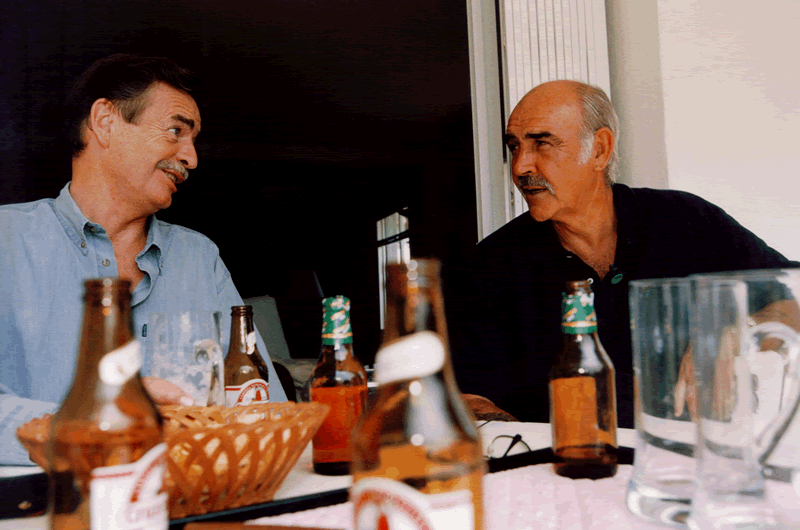(This is actually the remainder of the chapter posted on the 29th May. If you haven't read the first part of the chapter then you can do so by clicking here.)
In Fife the boys had space and freedom for imaginative play and the indulgence of essential childhood fantasies. More than their bodies could run free there. Apart from the ground around their grandparents' cottage, they had pretty much free run of a farm they used to go to to collect milk. For city boys even the reality of where the milk came from was a revelation. A big Clydesdale horse that was pastured on the farm submitted docilely to being a chariot of infantile dreams. Small as he was, Neil managed to sit on it without falling off. The older Tommy was able heroically to coax it to a jog-trot and be Shalako in embryo.
Besides being an invigorating furlough from Fountainbridge, those times at their maternal grandparents' house were also, no matter how unconsciously absorbed, inevitably suggestive of possibilities beyond the confining streets of an Edinburgh slum. Here were two people, from whom these boys were descended, who had worked their way out of constrained lives into the open. It might have taken a long time but they had reached a place where they lived a life they had chosen rather than one which had been forced upon them. They were a lesson in the possibility of becoming who you want to be, not just who your circumstances tell you you have to be.
What helped to enforce the lesson was that the teacher was such a life-affirming and attractive man. As late as the 1960's Sean Connery was still extolling his grandfather MacLean, then in his eighties, as an example of vigorous manhood - consumer of whisky and physically impressive. He was an expansive, very positive person whom Connery's memory seemed to have legendised into a Rabelaisian figure. The man's stature must have made that affectionate enlargement of reality all the easier. It seems likely that the height his grandsons were to achieve themselves was a genetic inheritance from their mother's side, since Joe Connery, though a muscular man, was a mere 5ft 8ins.
Even if Connery's sense of his maternal grandfather became exaggerated with the passage of time, that merely testifies the more convincingly to the influence the man had on his life. The directness of that influence may have been expressed haphazardly on those visits to Fife but it was augmented through another daily conduit. The dominant influence in the lives of the Connery boys was to be that of their mother, and Effie was partly the result of what her parents had brought her up to be.
Effie Connery was the linch-pin of the family, as so many working-class women have always been, and particularly so in that era. Unfortunately, the nature of their lives has meant that their achievements disappeared as they happened, went into the fabric of the lives around them, leaving no trace except for the kind of people they produced. They were lightning rods for earthing trouble. Their tireless errands were etched upon the stairs, an anonymous memorial to countless hours of caring. The white magic they constantly practised in alchemising a few quid into solid substance vanished into the mouths of those around them.
Wordsworth has some lines that seem, with a couple of changes, to apply:
That best portion of a good man's life:
His little, nameless, unremembered acts
Of kindness and of love.
Change 'man' to 'woman' and 'His' to 'Her' and he could be writing about women like Effie Connery. It is sadly impossible to have any detailed account of her life. But one of its surviving results is the values that were inculcated in her sons, Tommy and Neil.
(To read the next post in this series click here.)
 |

